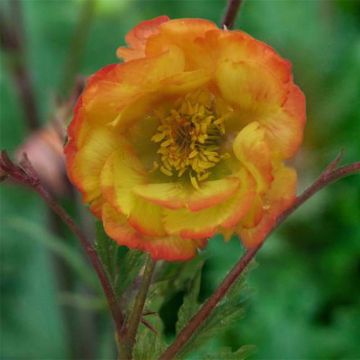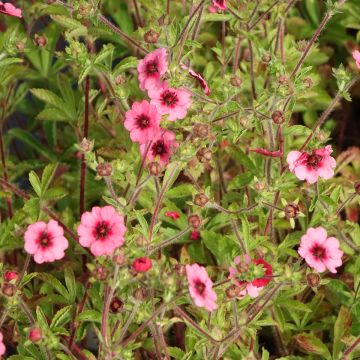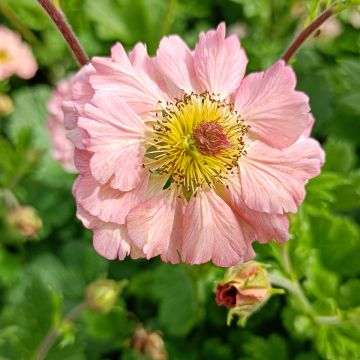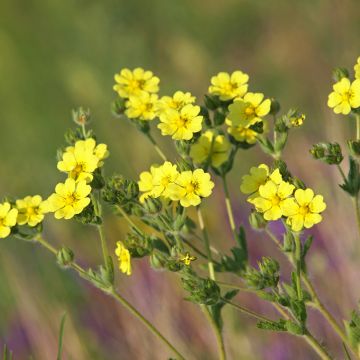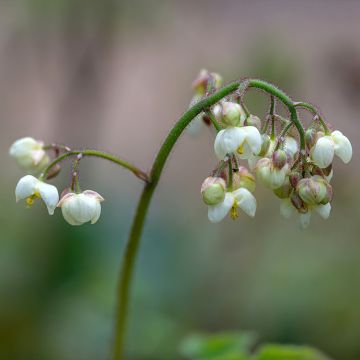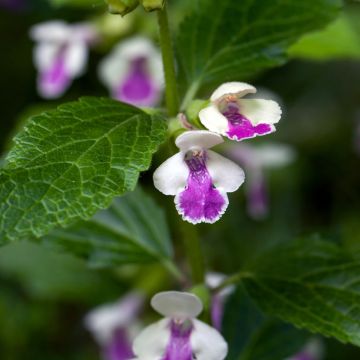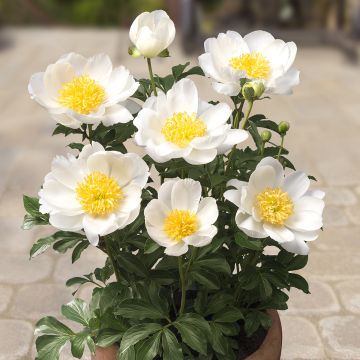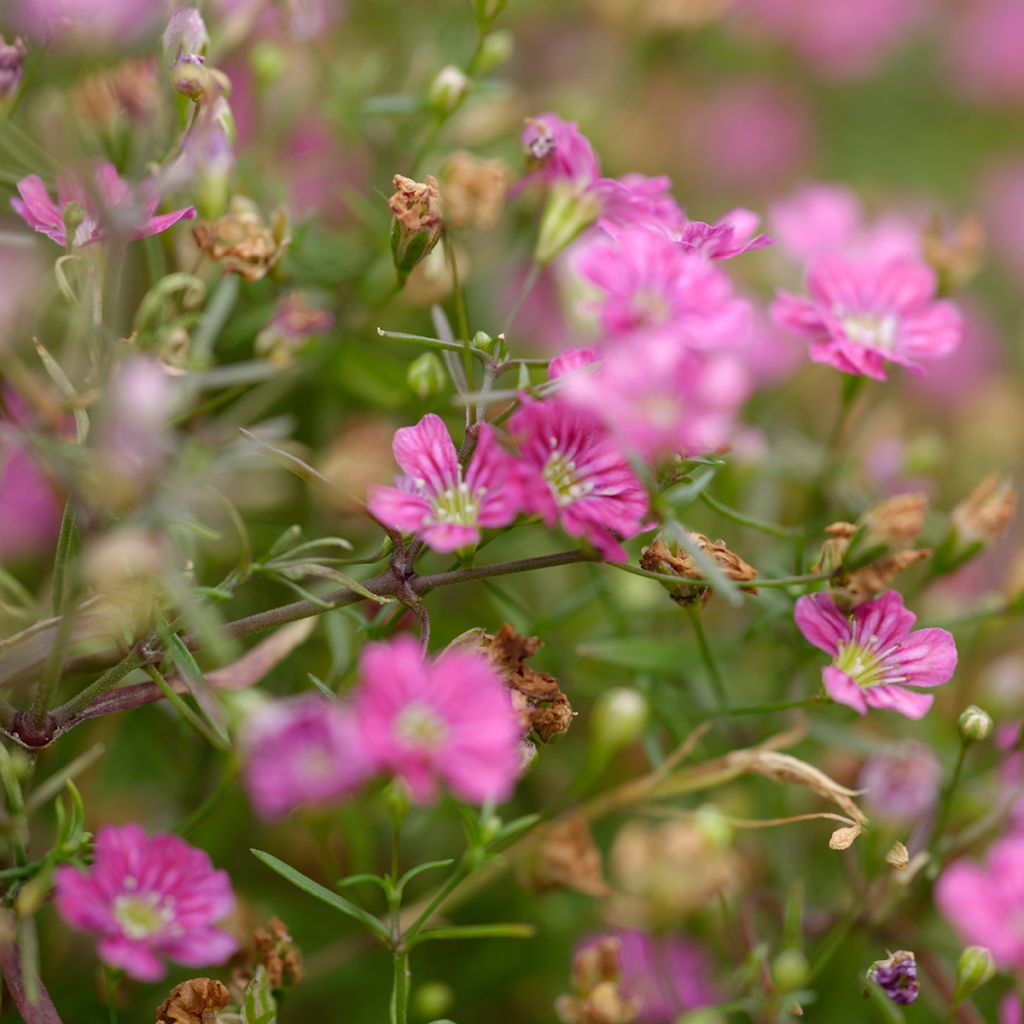

Gypsophila repens Rosa Schönheit
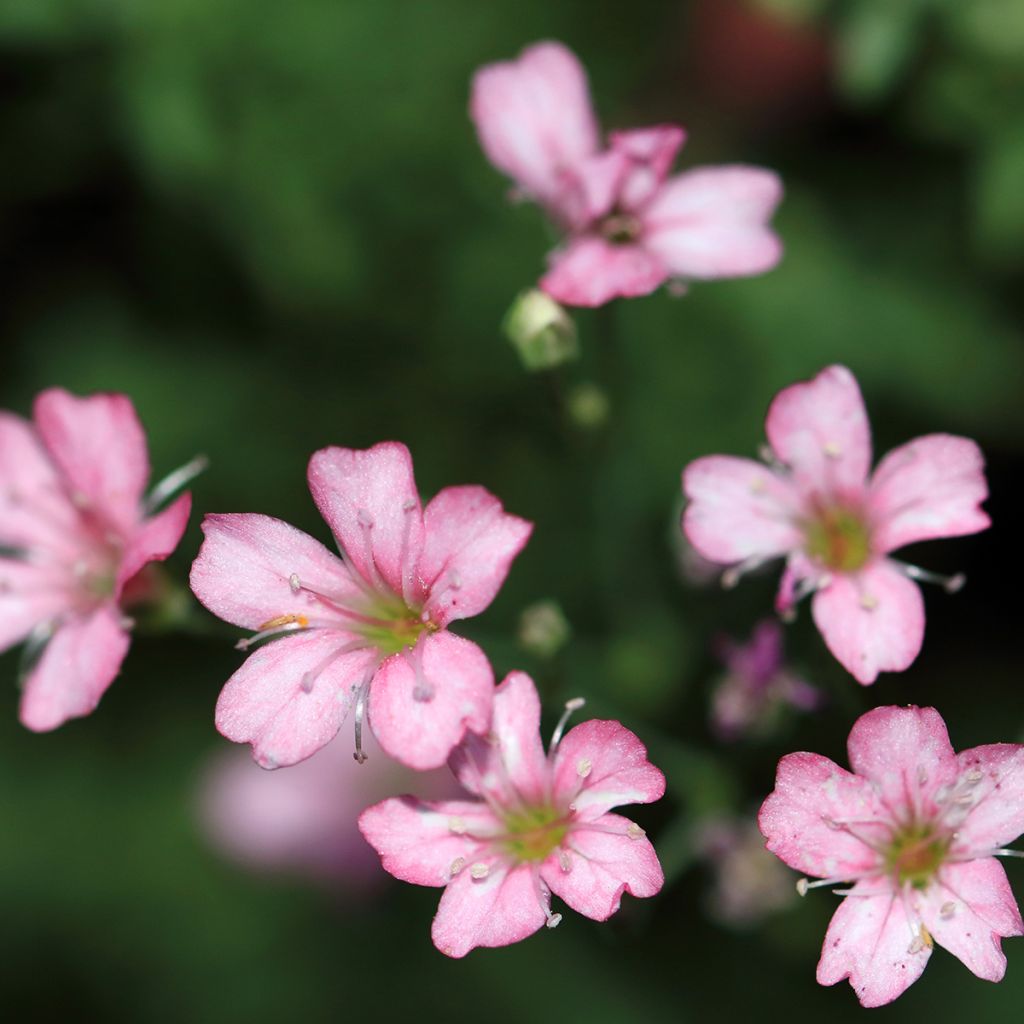

Gypsophila repens Rosa Schönheit
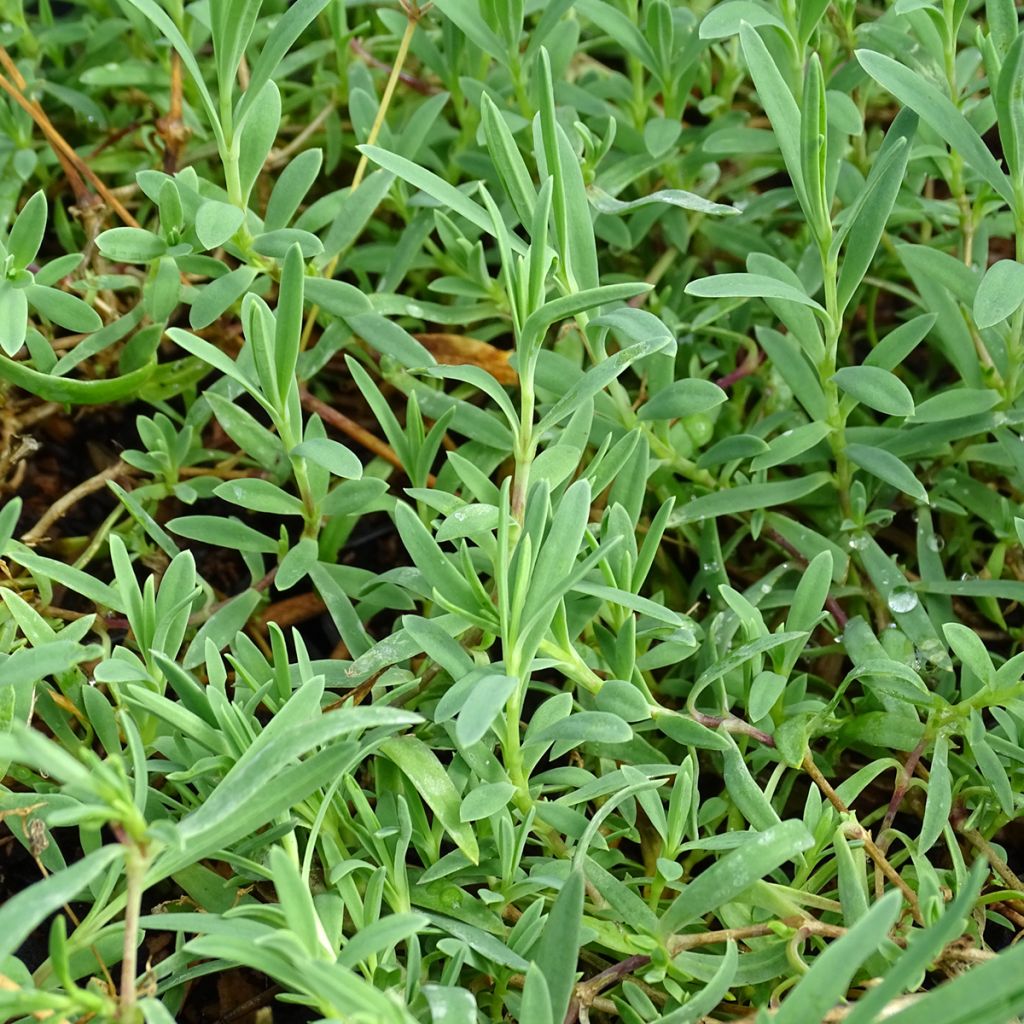

Gypsophila repens Rosa Schönheit
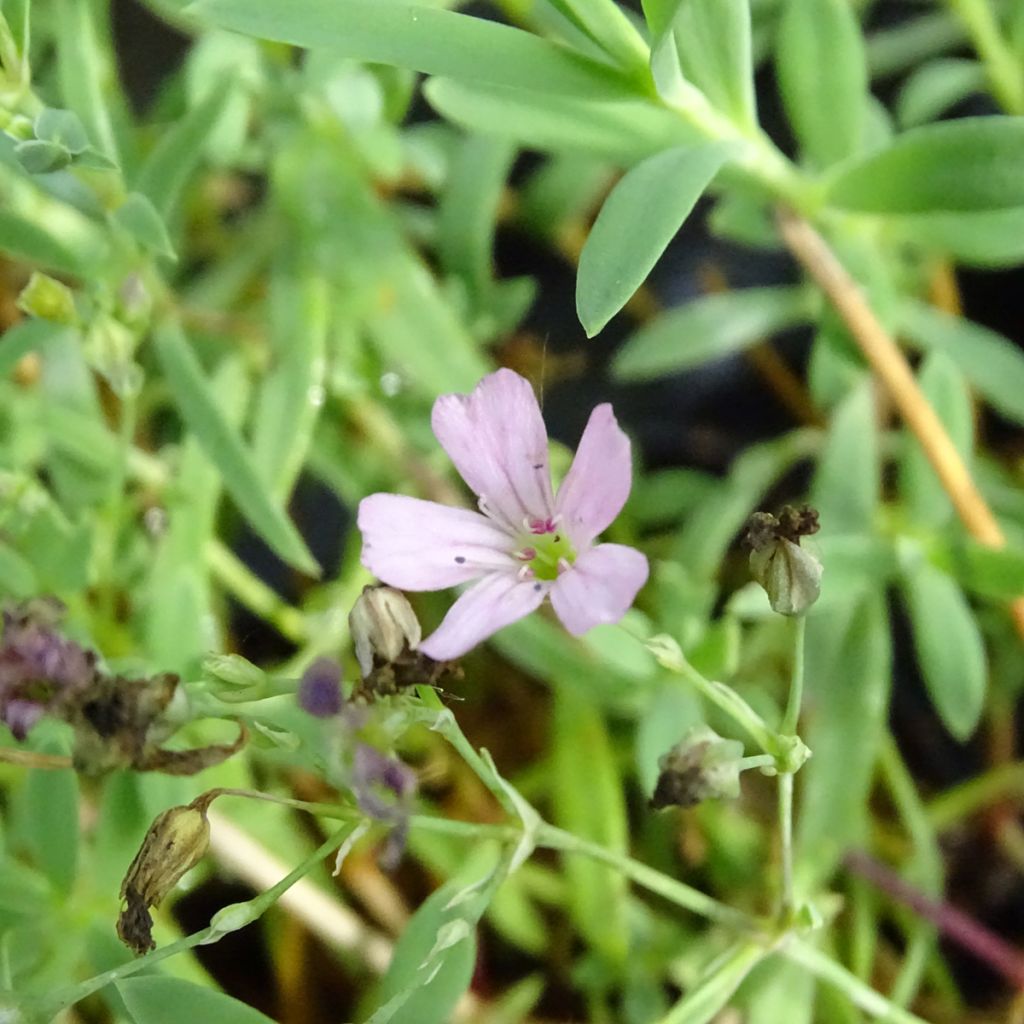

Gypsophila repens Rosa Schönheit
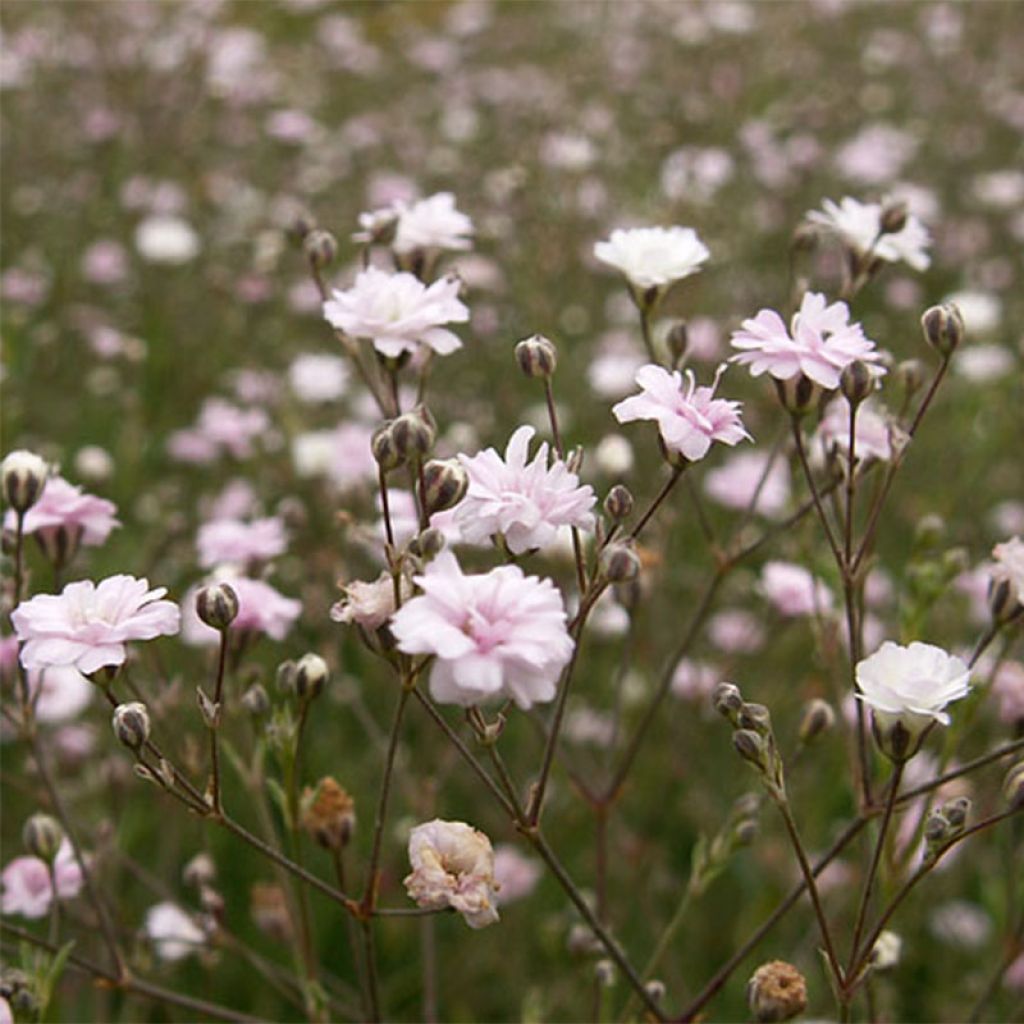

Gypsophila repens Rosa Schönheit
Gypsophila repens Rosa Schönheit
Gypsophila repens Rosa Schönheit
Creeping baby's breath, Baby's breath white-flowered
Purchased on promotion and planted near a Myrtus communis Tarentina, I am now patiently waiting for it to take root... (or not?)
Thierry, 24/12/2025
Special offer!
Receive a €20 voucher for any order over €90 (excluding delivery costs, credit notes, and plastic-free options)!
1- Add your favorite plants to your cart.
2- Once you have reached €90, confirm your order (you can even choose the delivery date!).
3- As soon as your order is shipped, you will receive an email containing your voucher code, valid for 3 months (90 days).
Your voucher is unique and can only be used once, for any order with a minimum value of €20, excluding delivery costs.
Can be combined with other current offers, non-divisible and non-refundable.
Home or relay delivery (depending on size and destination)
Schedule delivery date,
and select date in basket
This plant carries a 12 months recovery warranty
More information
We guarantee the quality of our plants for a full growing cycle, and will replace at our expense any plant that fails to recover under normal climatic and planting conditions.

Would this plant suit my garden?
Set up your Plantfit profile →
Description
Gypsophila repens 'Rosa Schönheit', also known as Creeping Baby's Breath, is a vigorous perennial groundcover plant. Its fine and slightly thick semi-evergreen foliage is a medium blue-green colour. In summer, it is covered with a cloud of dark pink star-shaped flowers, larger than usual for the genus, giving the plant an airy appearance. It is a drought-tolerant perennial, preferring light soils. It is deal for rock gardens, sunny embankments, in crevices, and on walls, where it cascades in vaporous draperies.
'Rosa Schönheit' belongs to the Caryophyllaceae family. It is native to the mountains of Europe, particularly the Iberian Peninsula, France, the Apennine Peninsula, and Eastern Central Europe. The plant has a spreading, cushion-like habit. Its mature size will not exceed 20cm (8in) in height and 40cm (16in) in width, or even more. The flowering period occurs from May to August if the soil remains slightly moist, with numerous dark pink five-petalled flowers. The flowers are arranged in cymes, creating an aesthetic and extremely light mist-like effect. The semi-evergreen to evergreen foliage is a medium blue-green colour and composed of small, fleshy, opposite, glabrous leaves measuring 1 to 3cm (1in), carried by initially prostrate, then ascending, knee-jointed stems.
'Rosa Schönheit' has its place in scree gardens, and in beds with light well-drained soil. Plant it among salvias, old roses, and robust perennials such as oriental poppies or gaura. This plant particularly enhances large-flowered perennials like German iris. It will form a mist-like carpet at the base of shrub peonies. Ideal in dry gardens, rockeries, or on sunny embankments where it will perfectly fulfil its role as ground cover. This gypsophila also adapts very well to containers and flower pots.
Report an error about the product description
Gypsophila repens Rosa Schönheit in pictures


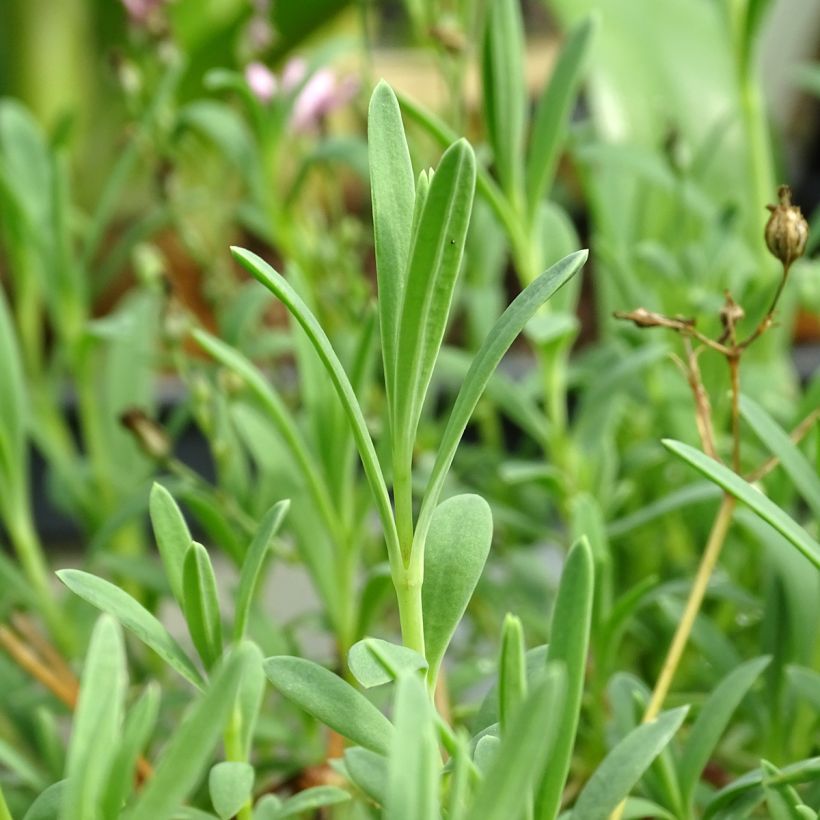

Flowering
Foliage
Plant habit
Botanical data
Gypsophila
repens
Rosa Schönheit
Caryophyllaceae
Creeping baby's breath, Baby's breath white-flowered
Cultivar or hybrid
Planting and care
Plant Gypsophila 'Rosa Schönheit' in deep, porous, dry to moist, and especially well-drained soil. Neutral or limestone soil is suitable. Excess moisture in winter can greatly harm it by causing root rot. Gravel-rich soil yields good results. This plant requires a very sunny but not scorching exposure. It does not like to be moved, as it has a fragile, fleshy, and pivoting root, so its planting location must be carefully chosen. Prune the plant after flowering.
Planting period
Intended location
Care
-
, onOrder confirmed
Reply from on Promesse de fleurs
Similar products
Haven't found what you were looking for?
Hardiness is the lowest winter temperature a plant can endure without suffering serious damage or even dying. However, hardiness is affected by location (a sheltered area, such as a patio), protection (winter cover) and soil type (hardiness is improved by well-drained soil).

Photo Sharing Terms & Conditions
In order to encourage gardeners to interact and share their experiences, Promesse de fleurs offers various media enabling content to be uploaded onto its Site - in particular via the ‘Photo sharing’ module.
The User agrees to refrain from:
- Posting any content that is illegal, prejudicial, insulting, racist, inciteful to hatred, revisionist, contrary to public decency, that infringes on privacy or on the privacy rights of third parties, in particular the publicity rights of persons and goods, intellectual property rights, or the right to privacy.
- Submitting content on behalf of a third party;
- Impersonate the identity of a third party and/or publish any personal information about a third party;
In general, the User undertakes to refrain from any unethical behaviour.
All Content (in particular text, comments, files, images, photos, videos, creative works, etc.), which may be subject to property or intellectual property rights, image or other private rights, shall remain the property of the User, subject to the limited rights granted by the terms of the licence granted by Promesse de fleurs as stated below. Users are at liberty to publish or not to publish such Content on the Site, notably via the ‘Photo Sharing’ facility, and accept that this Content shall be made public and freely accessible, notably on the Internet.
Users further acknowledge, undertake to have ,and guarantee that they hold all necessary rights and permissions to publish such material on the Site, in particular with regard to the legislation in force pertaining to any privacy, property, intellectual property, image, or contractual rights, or rights of any other nature. By publishing such Content on the Site, Users acknowledge accepting full liability as publishers of the Content within the meaning of the law, and grant Promesse de fleurs, free of charge, an inclusive, worldwide licence for the said Content for the entire duration of its publication, including all reproduction, representation, up/downloading, displaying, performing, transmission, and storage rights.
Users also grant permission for their name to be linked to the Content and accept that this link may not always be made available.
By engaging in posting material, Users consent to their Content becoming automatically accessible on the Internet, in particular on other sites and/or blogs and/or web pages of the Promesse de fleurs site, including in particular social pages and the Promesse de fleurs catalogue.
Users may secure the removal of entrusted content free of charge by issuing a simple request via our contact form.
The flowering period indicated on our website applies to countries and regions located in USDA zone 8 (France, the United Kingdom, Ireland, the Netherlands, etc.)
It will vary according to where you live:
- In zones 9 to 10 (Italy, Spain, Greece, etc.), flowering will occur about 2 to 4 weeks earlier.
- In zones 6 to 7 (Germany, Poland, Slovenia, and lower mountainous regions), flowering will be delayed by 2 to 3 weeks.
- In zone 5 (Central Europe, Scandinavia), blooming will be delayed by 3 to 5 weeks.
In temperate climates, pruning of spring-flowering shrubs (forsythia, spireas, etc.) should be done just after flowering.
Pruning of summer-flowering shrubs (Indian Lilac, Perovskia, etc.) can be done in winter or spring.
In cold regions as well as with frost-sensitive plants, avoid pruning too early when severe frosts may still occur.
The planting period indicated on our website applies to countries and regions located in USDA zone 8 (France, United Kingdom, Ireland, Netherlands).
It will vary according to where you live:
- In Mediterranean zones (Marseille, Madrid, Milan, etc.), autumn and winter are the best planting periods.
- In continental zones (Strasbourg, Munich, Vienna, etc.), delay planting by 2 to 3 weeks in spring and bring it forward by 2 to 4 weeks in autumn.
- In mountainous regions (the Alps, Pyrenees, Carpathians, etc.), it is best to plant in late spring (May-June) or late summer (August-September).
The harvesting period indicated on our website applies to countries and regions in USDA zone 8 (France, England, Ireland, the Netherlands).
In colder areas (Scandinavia, Poland, Austria...) fruit and vegetable harvests are likely to be delayed by 3-4 weeks.
In warmer areas (Italy, Spain, Greece, etc.), harvesting will probably take place earlier, depending on weather conditions.
The sowing periods indicated on our website apply to countries and regions within USDA Zone 8 (France, UK, Ireland, Netherlands).
In colder areas (Scandinavia, Poland, Austria...), delay any outdoor sowing by 3-4 weeks, or sow under glass.
In warmer climes (Italy, Spain, Greece, etc.), bring outdoor sowing forward by a few weeks.



































